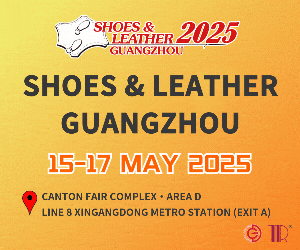EU and Vietnam finalise trade deal

Talks for a free trade agreement (FTA), marking the end of the negotiating process between the two regions, were concluded now
"Completion of the negotiations is good news for both the EU and Vietnam. Vietnam is a vibrant economy of more than 90 million consumers with a growing middle class and a young and dynamic workforce. Its market has great potential and offers numerous opportunities for the EU's agricultural, industrial and services exports. This FTA is also significant because of its strong focus on sustainable development. It will support Vietnam's efforts to further enhance economic growth and development for its people in the years to come. This agreement provides a new model for trade policy with developing countries", stated Cecilia Malmström, the EU Trade Commissioner, adding: “The EU and Vietnam have also committed to ensure the respect of workers' rights and to support a sustainable management of natural resources”.
According to the European Commission, this deal will unlock a market with huge potential for EU firms, while it "supports Vietnam's transition towards a more competitive, smarter and greener economy". The deal also has the potential to stimulate a wave of investment in both directions, supported by an updated investment dispute resolution system.
After the EU-Singapore trade deal concluded in 2014, this deal evidences the EU's commitment to the Southeast Asia region. Some view it as an important step towards an eventual region-to-region FTA with the Association of Southeast Asian Nations (ASEAN).
Next steps regarding the EU - Vietnam deal include the legal review and translation into the EU's official languages and Vietnamese. The Commission will then present a proposal to the Council of Ministers for approval of the agreement and ratification by the European Parliament.
This announcement, resulting from successful resolution of open issues, follows the agreement in principle reached in August. At the time the World Footwear spoke to Mr. Le Xuan Duong, from Lefaso (Vietnam Leather, Footwear and Handbag Association). Mr Duong has praised the benefits of a deal that will result in “export duties for footwear from Vietnam to EU will be totally cut down to 0% after 7 years after effective of EVFTA (EU - Vietnam Free Trade Agreement). Most of sport, canvas and protective shoes will have 0% duty right after effectiveness, but leather shoes will have 0% after 5-7 years to protect EU producers”.
Mr Duong also added the advantages of this agreement for his country as one of China’s main competitors. Lefaso has no questions about the importance of foreign direct investment (FDI) in the fast increase of footwear production from Vietnam during recent years, and they even estimate that in 2014 FDI occupied 77% of total export turnover of Vietnamese footwear. In this sense, the EVFTA will be a way of attracting more FDI to come for larger production in Vietnam for export to EU in the years to come.
According to the European Commission, this deal will unlock a market with huge potential for EU firms, while it "supports Vietnam's transition towards a more competitive, smarter and greener economy". The deal also has the potential to stimulate a wave of investment in both directions, supported by an updated investment dispute resolution system.
After the EU-Singapore trade deal concluded in 2014, this deal evidences the EU's commitment to the Southeast Asia region. Some view it as an important step towards an eventual region-to-region FTA with the Association of Southeast Asian Nations (ASEAN).
Next steps regarding the EU - Vietnam deal include the legal review and translation into the EU's official languages and Vietnamese. The Commission will then present a proposal to the Council of Ministers for approval of the agreement and ratification by the European Parliament.
This announcement, resulting from successful resolution of open issues, follows the agreement in principle reached in August. At the time the World Footwear spoke to Mr. Le Xuan Duong, from Lefaso (Vietnam Leather, Footwear and Handbag Association). Mr Duong has praised the benefits of a deal that will result in “export duties for footwear from Vietnam to EU will be totally cut down to 0% after 7 years after effective of EVFTA (EU - Vietnam Free Trade Agreement). Most of sport, canvas and protective shoes will have 0% duty right after effectiveness, but leather shoes will have 0% after 5-7 years to protect EU producers”.
Mr Duong also added the advantages of this agreement for his country as one of China’s main competitors. Lefaso has no questions about the importance of foreign direct investment (FDI) in the fast increase of footwear production from Vietnam during recent years, and they even estimate that in 2014 FDI occupied 77% of total export turnover of Vietnamese footwear. In this sense, the EVFTA will be a way of attracting more FDI to come for larger production in Vietnam for export to EU in the years to come.












